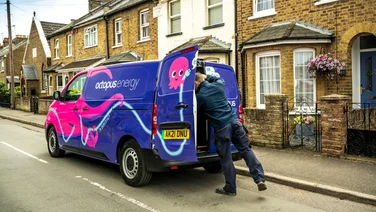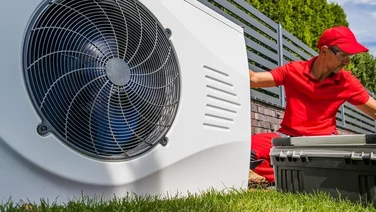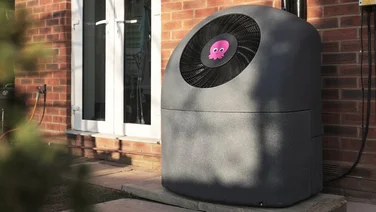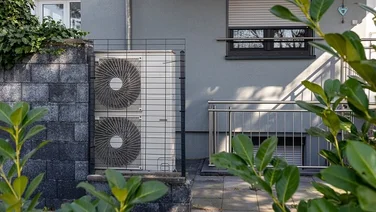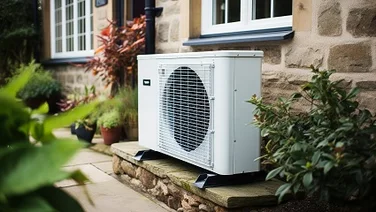- There are several heat pump grants available in countries around the world
- Heat pumps help reduce our reliance on fossil fuels to warm homes
- Some grants and initiatives can save homeowners a lot of money

How to get government grants and funding for a heat pumps around the world
Heat pumps are a great way to heat our homes, and we can do so without harming the environment. Instead of using fossil fuels, heat pumps use electricity to draw the ambient warmth of soil, air, or water to keep homes warm.
This makes them much better for the planet than traditional gas and oil boilers, which has prompted governments around the world to encourage people to use them by introducing grants, schemes, and initiatives.
Here we cover some of the best-known grants around the world, providing details on what homeowners in their respective countries can save on heat pumps by opting for them.
United Kingdom

The UK is seeking to promote heat pumps as part of its drive to reach net-zero emissions. For homeowners looking to get help with purchasing a heat pump, there’s the Boiler Upgrade Scheme.
Check our guide for in detailed information about heat pump grants and funding available in the UK, but here’s a brief overview:
The Boiler Upgrade Scheme
The Boiler Upgrade Scheme (BUS) was introduced by the UK government to help homeowners get up to £7,500 off the cost of a heat pump installation.
Unfortunately the government set aside just £450 million for the scheme, meaning just 60,000 homes will be able to take advantage of it. However, if you still wish to see if you can apply, you’ve got until 2028 when the scheme closes.
To be eligible for the BUS, you must meet the following requirements:
- You must be a homeowner or small business owner
- Your property must be in England or Wales
- The building must have been issued an energy performance certificate (EPC) in the past 10 years
Czechia

If you’re a homeowner in Czechia looking to install a heat pump, there’s one major scheme offered by the Czech government to help you reduce the costs of installing one — The Green Savings Scheme.
If you want to read these details in Czech, take a look at our Czech language site here.
New Green Savings scheme
The Czech government introduced the New Green Savings scheme in September 2023, to help homeowners in Czechia apply for grants up 200,000 CZK (roughly £6,900). They can use this grant to help finance a heat pump installation.
You might also be able to benefit from additional grands depending on your location — residents in Karlovy Vary, Moravian-Silesian, or Ústí Region, for example, can get an extra 10% of the total amount of the subsidy.
Who is eligible for the New Green Savings scheme?
To be eligible for the New Green Savings scheme in Czechia, you must meet the following requirements:
- Be the owner of a family house or apartment, either as an individual or legal entity
- Be replacing an inefficient boiler system with a heat pump
- The heat pump must increase a home’s energy efficiency to meet classes A–D
You cannot claim via the New Green Savings scheme if you’ve already benefited from government support to replace a boiler after January 2009.
France

If you live in France and want help towards funding a heat pump installation, you have two major options available — Ma Prime Renov, and the Heating Boost Bonus.
Ma Prime Renov
Ma Prime Renov is designed to help homeowners in France get funding towards energy renovation work — including heat pumps. It is a government subsidy that is specifically designed to help homes looking to improve their energy efficiency.
If you’re just using Ma Prime Renov for help towards funding a heat pump, you’ll be able to get up to €4,000, which can be a huge help.
The more energy efficient a home is, the more funding it’ll get from Ma Prime Renov.
Be aware that Ma Prime Renov has very recently changed. As of 15th May 2024, the requirement for an energy performance diagnosis (DPE) for simple work has been removed until 31st December 2024.
Who is eligible for Ma Prime Renov?
You typically need to be considered a ‘very low income’ household to qualify for the maximum funding via Ma Prime Renov. The scheme will assess your income and that of all the people who occupy your property.
Additionally, installation of the heat pump must be carried out by an RGE QualiPAC craftsman, and you must live in the property for a minimum of eight months per year.
Finally, the house needs to be older than two years.
Heating Boost Bonus
The French government set up the Heating Boost Bonus to offer help to homeowners looking to replace their coal, gas, or oil boiler. Grant funding up to €5,000 has been allocated to energy suppliers by the government, who then pass it on to consumers.
How much you can get via the bonus depends on the income of your home — modest or low-income households can claim a minimum of €4,000 towards an air/water heat pump. All other households can claim no more than €2,500.
It’s also possible to combine the Heating Boost Bonus with Ma Prime Renov, and the Zero-interest Eco Loan (eco-PTZ), which could save you thousands of euros. You should also check with your local council to see if any other local aids are available, because you’ll typically be able to combine them with the Heating Boost Bonus too.
Who is eligible for the Heating Boost Bonus?
To be eligible for the Heating Boost Bonus, you must meet some of the following requirements:
- Your home must have been built more than two years ago
- You own or rent a detached house
- This home must be your primary or secondary residence
Germany

Looking for help purchasing a heat pump in Germany? There is one major scheme available that provides funding for heat pumps — the Federal Funding for Efficient Buildings scheme.
Federal Funding for Efficient Buildings
Germany has decided to make the whole process of getting funding for a heat pump more efficient by combining various nationwide funding programmes into one. Called the Federal Funding for Efficiency Buildings scheme, it allows for a maximum grant of €30,000 to pay for heat pumps.
It works by discounting the cost of installing new renewable energy sources, including heat pumps. The percentage of discount starts at 30%, which is available for all private homeowners and increases by an extra 5% for heat pumps.
There’s also an additional 20% (a ‘climate acceleration bonus) for replacing particularly inefficient old heating systems.
And finally, an income-dependent bonus of 30% is available for households with an annual income of €40,000 or less. This totals a 70% discount, or €30,000.
Who is eligible for the Federal Funding?
All private homeowners, landlords, companies, non-profit organisations, municipalities and contractors are eligible.
The maximum amount a single household can receive for replacing a heating system is €90,000 per housing unit.
Italy

There is just one grant available for homeowners in Italy looking to get help towards buying a heat pump, but it is fairly comprehensive. Called the Eco Bonus, it was one of a few tax credit schemes that survived recent cuts by the Italian government and is a great way for homeowners to get funding towards home improvements.
The Eco Bonus
The Eco Bonus is a scheme that helps homeowners get varying levels of discounts off of energy-efficiency improvements. For example, if you’re looking to replace an old gas boiler with a more modern heat pump, you can get up to 65% off the cost.
If a heat pump isn’t a practical option, you can still get a discount of 50% to your home improvements. This applies to replacing old, inefficient boilers with either a condensing boiler or a biomass pellet-burning stove.
You can get a maximum of €30,000 for a single home with the Eco Bonus, and this discount is spread over 10 years.
Who is eligible for the Eco Bonus?
There aren’t any of the usual eligibility criteria in qualifying for the Eco Bonus (income doesn’t matter, for example), but you do still need to meet the following requirements:
- The heat pump you get must replace an old, inefficient system
- You cannot combine the Eco Bonus grant with other grants
- Your property must be registered with the Revenue Office
Denmark

If you live in Denmark and want help funding a heat pump installation, there is one grant available — the Heat Pump Pool.
The Heat Pump Pool
The Danish government has decided to bring back the Heat Pump Pool, which will allow homeowners to get subsidies towards heat pump installations from 27th May 2024.
A grant of DKK 17,000 (£1,940) will be available for air source heat pumps, and a grant of DKK 27,000 can be obtained for water source heat pumps.
Who is eligible for the Heat Pump Pool?
Homeowners in Denmark can apply for subsidies from the Heat Pump Pool regardless of the size of their home, just as long as the installation helps create savings in energy consumption.
In short, homeowners must be converting from an oil boiler, gas boiler, biomass boiler, or electric heating.

